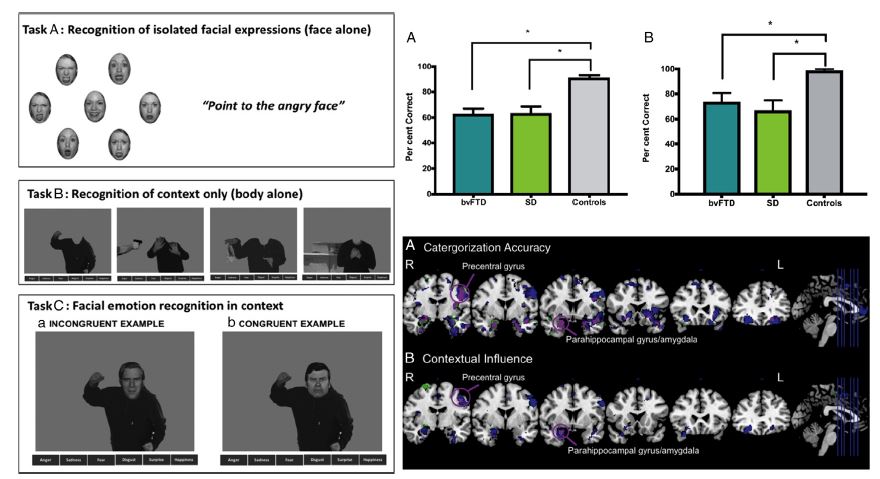08 de octubre 2020
Abstract:
Neurological disorders have been historically assessed under symptom-centric descriptions, with dimensional approaches having a peripheral influence. However, social neuroscience evidences common dimensional impairments across diseases. We present a triangulation between dimensional approaches, behavioral neurology, and social neuroscience, paving the way for innovative conceptualizations. By reviewing six social cognition domains (facial emotion recognition, empathy, theory of mind, moral cognition, interoception, and social context assessment) we evidence how they are commonly impaired across neurological conditions. We further emphasize the multidimensional support for a dimensional and transdiagnostic approach in behavioral neurology. Finally, we examine the advantages of a complementary approach for both fields (neurology and social neuroscience).


